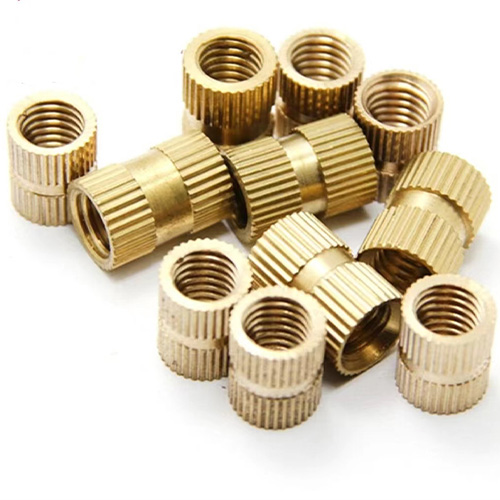Key aspects of brass nuts
2023-10-16
A brass nut is a type of fastener made from brass, which is an alloy of copper and zinc. Brass nuts are commonly used in various applications for joining threaded components, such as bolts or screws, to secure objects together. They offer several advantages due to the properties of brass, including its corrosion resistance, aesthetic appeal, and ease of machining.
Here are key aspects of brass nuts:
1. Material: Brass nuts are made from brass, which is known for its attractive gold-like appearance and durability. The composition of brass can vary, allowing for different levels of hardness, corrosion resistance, and other desirable properties.
2. Threaded Design: Brass nuts are designed with internal threads that match the external threads of bolts or screws. When tightened onto a threaded component, they create a secure connection.
3. Corrosion Resistance: Brass is corrosion-resistant, which makes brass nuts suitable for various environments, including outdoor and marine applications. They are less likely to rust or corrode compared to nuts made from other materials.
4. Aesthetic Appeal: The gold-like color of brass gives nuts a visually appealing finish. Brass nuts are often used in applications where appearance is important, such as furniture, decorative hardware, and architectural elements.
5. Electrical Conductivity: Brass is a good conductor of electricity, making brass nuts suitable for applications where electrical connections are involved.
6. Machinability: Brass is relatively easy to machine and shape, allowing for the creation of intricate threaded designs and accurate dimensions.
7. Applications: Brass nuts find use in a wide range of applications, including plumbing, automotive, electrical equipment, musical instruments, furniture assembly, and more.
8. Types of Brass Nuts: There are various types of brass nuts available, such as hex nuts (with six sides), wing nuts (with wing-like projections for hand-tightening), and lock nuts (designed to prevent loosening due to vibration).
9. Compatibility: Brass nuts are compatible with bolts and screws made from various materials, including brass, steel, and other alloys.
10. Maintenance: Brass nuts can be maintained by cleaning them to restore their shine and appearance. However, exposure to certain environments may cause them to develop a patina over time, which is a natural oxidation process.
11. Cost: Brass nuts can be more expensive than nuts made from other materials, such as steel, due to the cost of brass as a raw material.
Brass nuts are versatile fasteners known for their corrosion resistance, aesthetic appeal, and suitability for various applications. They provide a reliable means of joining threaded components while adding an attractive finish to the overall appearance of the assembled parts.



